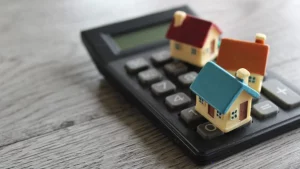Refinancing a mortgage presents a strategic opportunity for homeowners to enhance their financial position. By reassessing current loan terms and interest rates, individuals may access significant savings on monthly payments and total loan costs. This process not only facilitates access to home equity for renovations or debt consolidation but also aligns financial resources with broader goals. Understanding the nuances of refinancing will reveal essential insights into maximizing potential benefits. What steps should homeowners consider next?
Key Takeaways
- Evaluate current mortgage terms and compare them with current market rates to identify potential savings.
- Access home equity through refinancing for renovations, which can increase property value and savings in the long run.
- Consolidate high-interest debt into the new mortgage to lower overall payments and simplify financial management.
- Shorten the loan term to pay off the mortgage faster, saving significantly on interest payments over time.
- Shop around for lenders to find the best rates and avoid common mistakes like overlooking total refinancing costs.
Understanding Mortgage Refinancing: The Basics
Understanding mortgage refinancing is essential for homeowners seeking to enhance their financial situation. This process allows individuals to replace their existing mortgage with a new one, potentially at a lower interest rate or with different terms. By understanding how to save money by refinancing a mortgage, homeowners can greatly reduce monthly payments, pay off debt faster, or access equity for home improvements. Additionally, refinancing can lead to long-term savings, as a lower interest rate translates to reduced overall loan costs. Homeowners should consider their financial goals, current market conditions, and potential fees associated with refinancing. Engaging with knowledgeable professionals can further clarify this complex process, fostering a sense of community and support among those steering their financial journeys.
Evaluating Your Current Mortgage: When to Refinance
Homeowners must carefully assess their current mortgage to determine the right timing for refinancing. Factors such as interest rates, loan terms, and personal financial situations should be scrutinized. If interest rates have markedly dropped since the original mortgage was taken out, refinancing may result in substantial savings. Additionally, evaluating the remaining balance and time left on the loan can provide insights into whether refinancing is beneficial. Homeowners should also consider changes in credit scores or income, which might affect eligibility for better rates. By conducting a thorough evaluation of these elements, homeowners can make informed decisions about refinancing, aligning their financial goals with the potential for savings. Understanding when to refinance is essential for maximizing long-term benefits.

The Financial Benefits of Refinancing: How to Save Money by Refinancing a Mortgage
Refinancing a mortgage can offer substantial financial benefits, especially when market conditions are favorable. Homeowners may lower their interest rates, resulting in reduced monthly payments and significant long-term savings. Additionally, refinancing can facilitate access to home equity, allowing for investments in renovations or other financial goals. This process can also consolidate debt, potentially leading to a more manageable financial situation. Moreover, a shorter loan term may enable homeowners to pay off their mortgage faster, reducing the total interest paid. Ultimately, understanding how to save money by refinancing a mortgage can empower homeowners to make informed decisions, fostering a sense of belonging in a community that values financial well-being and stability.
Steps to Refinance Your Mortgage: A Guide for Homeowners
Steering through the refinancing process requires careful planning and consideration of various steps to guarantee that homeowners maximize their savings. First, it is essential to assess current financial situations and determine refinancing goals, such as lowering monthly payments or accessing home equity. Next, homeowners should research and compare lenders to find the most favorable terms and interest rates. Securing a good credit score is vital, as it greatly influences loan options. After selecting a lender, homeowners will need to gather necessary documentation, such as income verification and asset statements. Finally, closing the new loan involves reviewing all terms carefully. By diligently following these steps, homeowners can effectively understand how to save money by refinancing a mortgage, ultimately enhancing their financial well-being.
Common Mistakes to Avoid When Refinancing Your Mortgage
Many individuals seeking to save money by refinancing a mortgage may inadvertently make critical missteps that can undermine their financial goals. One common mistake is failing to shop around for the best rates; a slight difference can result in substantial savings over time. Additionally, many overlook the total costs associated with refinancing, such as closing costs and fees, which can negate potential savings. Ignoring the loan term is another pitfall; extending the term may lower monthly payments but increase overall interest. Ultimately, not considering the impact on credit scores can lead to unfavorable rates. By avoiding these errors, individuals can better navigate the refinancing process, maximizing their potential to save money by refinancing a mortgage.
Frequently Asked Questions
What Impact Does My Credit Score Have on Refinancing Rates?
A credit score greatly influences refinancing rates, as lenders assess risk. Higher scores typically yield lower interest rates, promoting financial savings. Maintaining a strong credit profile enhances opportunities for favorable refinancing terms, benefiting borrowers financially.
Can I Refinance if I Have an Existing Home Equity Loan?
Yes, refinancing is possible even with an existing home equity loan. However, it may influence the refinancing process, as lenders assess total debt. Understanding options can lead to effective strategies for saving money through refinancing.
How Long Does the Refinancing Process Typically Take?
The refinancing process typically takes 30 to 45 days, depending on various factors including lender responsiveness and borrower documentation. Staying organized and proactive can help expedite the process, ensuring a smoother experience for all involved.
Are There Fees Associated With Refinancing a Mortgage?
Yes, refinancing a mortgage often involves various fees, including application, appraisal, and closing costs. These expenses can impact overall savings, making it essential for homeowners to evaluate them against potential long-term benefits of refinancing.
Will Refinancing Affect My Property Tax Assessment?
Refinancing typically does not directly affect property tax assessments; however, it may lead to changes in property value, which could influence future assessments. Homeowners should consult local regulations for specific implications on tax assessments.
Conclusion
In summary, refinancing a mortgage presents a strategic opportunity for homeowners to access significant savings and enhance their financial flexibility. By understanding the refinancing process and carefully evaluating their current mortgage, individuals can capitalize on lower interest rates, access home equity, and consolidate debt. However, it is essential to avoid common pitfalls to fully realize these benefits. With informed decision-making, homeowners can achieve technician-level savings, ultimately leading to improved financial well-being and greater investment potential.
You May Also Like To Read:
